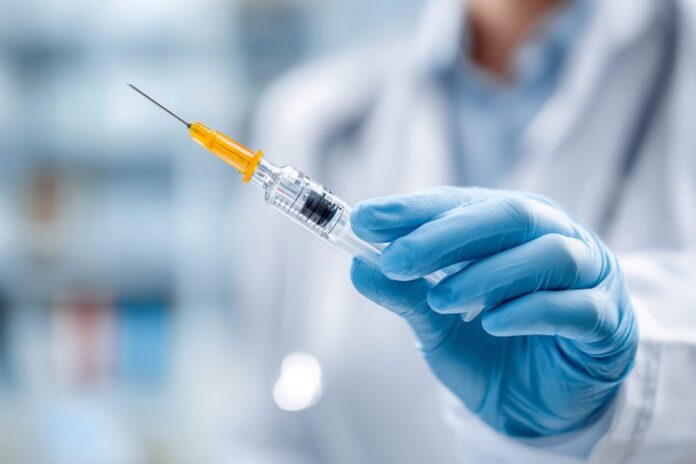Understanding Testosterone Replacement Therapy (TRT)
Testosterone replacement therapy, widely known as TRT, is a medical intervention designed to compensate for low levels of the essential hormone testosterone in the body. Most importantly, this therapy addresses hypogonadism, a condition where men do not produce sufficient testosterone to support normal bodily functions. Because the hormonal balance is vital for overall well-being, TRT has become a trusted solution for many who struggle with the consequences of deficiency.
In addition, TRT is available in various forms including injections, skin patches, topical gels, pellets, and even oral pills. Doctors often recommend the method that best suits a patient’s lifestyle and medical needs. Therefore, choosing a delivery method is largely based on patient preference, convenience, and clinical advice, as detailed by resources such as Cleveland Clinic and Wikipedia. Besides that, these different formulations allow for a custom-tailored approach to supplementing testosterone effectively.
Why Is Testosterone Important?
Testosterone is a crucial hormone that drives the development of male sexual characteristics. Moreover, it significantly influences muscle mass, bone density, and overall energy levels. Because a balance in testosterone is necessary for both physical and mental health, maintaining proper levels becomes imperative. Its role extends to regulating mood and cognitive functions, thereby impacting daily quality of life.
Furthermore, testosterone is not just essential for physical development but also plays a critical role in metabolic processes. Most importantly, it directly affects libido and overall sexual performance, which underscores why many individuals seek medical advice when experiencing losses in these areas. In summary, optimal testosterone levels help sustain vitality in several aspects of health, ensuring robust physical and mental functions.
Who Needs Testosterone Replacement Therapy?
TRT is primarily recommended for men experiencing clinical symptoms related to low testosterone. For instance, symptoms such as persistent fatigue, low libido, erectile dysfunction, decreased muscle mass, and increased body fat are common indicators of androgen deficiency. Because these symptoms can severely affect quality of life, patients are urged to get tested to confirm a hormonal imbalance.
Besides that, TRT is considered for patients whose clinical examination and blood tests confirm a markedly low testosterone level. Doctors rely on both subjective symptoms and objective measures to recommend this therapy. In addition, counseling and a thorough evaluation often precede any decision about starting TRT, ensuring that only those who truly need treatment receive it. For further insights, refer to guidelines published by South Carolina Blues.
Potential Benefits of Testosterone Replacement Therapy
Testosterone therapy can lead to significant improvements in quality of life and overall health. Most importantly, enhanced sexual desire and performance are among the primary benefits reported by many patients. Because testosterone plays a key role in muscle development, many users experience increased lean body mass and reduction in body fat, which contributes to improved physical conditioning and confidence.
In addition, TRT can help improve bone mineral density, reducing the risk of fractures and osteoporosis. For many individuals, the therapy not only boosts physical strength but also enhances energy levels and mood. Therefore, patients often observe a combination of physical and psychological improvements that can renew their overall enthusiasm for daily activities, as supported by studies available on PubMed.
Risks and Side Effects: Is TRT Safe?
While the benefits of TRT are notable, clinicians emphasize the importance of understanding its potential risks. Most importantly, side effects may include acne or oily skin, an increased risk of blood clots, and occasionally, the enlargement of breast tissue, known as gynecomastia. Because these issues can affect patient well-being, close monitoring is recommended by healthcare providers.
Moreover, patients may experience worsening of sleep apnea, an increased red blood cell count (polycythemia), and potential impacts on prostate health. Therefore, it is crucial to weigh the benefits against the possible adverse effects. Latest guidelines from Mayo Clinic advise that ongoing evaluation and routine testing are essential parts of any TRT regimen to ensure its safe application over the long term.
Who Should Avoid Testosterone Therapy?
Not every individual with low testosterone levels should pursue TRT. Doctors recommend that individuals with a history of prostate or breast cancer generally avoid this treatment unless absolutely necessary. Most importantly, men with untreated severe sleep apnea or those with elevated red blood cell counts should exercise caution. Because the therapy might exacerbate pre-existing conditions, each case requires an individualized risk assessment.
Furthermore, screening is critical before initiating TRT. Health professionals often recommend comprehensive assessments to identify any contraindicated medical conditions. Apart from that, regular follow-up visits ensure that any adverse changes can be caught early, thereby maintaining patient safety throughout the treatment course. You can find additional information on patient selection at resources like the Cleveland Clinic website.
Current Research and Expert Guidelines
Ongoing research is expanding our understanding of testosterone replacement therapy. Most importantly, expert guidelines underscore that TRT should only be used in individuals with clinically verified low testosterone levels accompanied by relevant symptoms. Because medical research continues to evolve, guidelines are frequently updated to reflect emerging evidence, helping practitioners align treatment strategies with the most current findings.
In addition, the therapy’s long-term effects on cardiovascular health and prostate cancer risk remain subjects of active investigation. Therefore, physicians advocate for personalized treatment plans that combine routine testing with risk management strategies. For comprehensive information, review the policies provided at South Carolina Blues for the latest expert recommendations.
Final Thoughts
Testosterone replacement therapy plays a pivotal role in enhancing the quality of life for individuals suffering from androgen deficiency. Most importantly, TRT offers tangible benefits such as increased energy, improved sexual function, and better body composition. Because the therapy is not without its challenges, informed decision-making through professional guidance is paramount.
Furthermore, anyone considering TRT should engage in thorough discussions with healthcare providers to assess the potential risks and benefits. Regular monitoring and a personalized approach to the treatment plan ensure safety and allow for adjustments as needed over time. For those seeking detailed and authoritative insights, visiting reputable sources such as Cleveland Clinic, Mayo Clinic, and Wikipedia is highly recommended.



